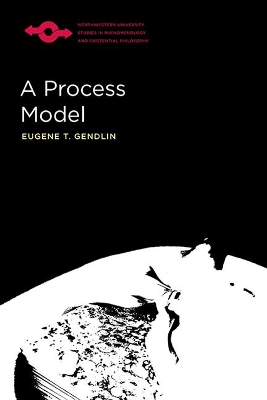Studies in Phenomenology and Existential Philosophy
2 total works
Eugene T. Gendlin (1926-2017) is increasingly recognized as one of the seminal thinkers of our era. Carrying forward the projects of American pragmatism and continental philosophy, Gendlin created an original form of philosophical psychology that brings new understandings of human experience and the life-world, including the "hard problem of consciousness."
A Process Model, Gendlin's magnum opus, offers no less than a new alternative to the dualism of mind and body. Beginning with living process, the body's simultaneous interaction and identity with its environment, Gendlin systematically derives nonreductive concepts that offer novel and rigorous ways to think from within lived precision. In this way terms such as body, environment, time, space, behavior, language, culture, situation, and more can be understood with both great force and great subtlety.
Gendlin's project is relevant to discussions not only in philosophy but in other fields in which life process is central-including biology, environmental management, environmental humanities, and ecopsychology. It provides a genuinely new philosophical approach to complex societal challenges and environmental issues.
A Process Model, Gendlin's magnum opus, offers no less than a new alternative to the dualism of mind and body. Beginning with living process, the body's simultaneous interaction and identity with its environment, Gendlin systematically derives nonreductive concepts that offer novel and rigorous ways to think from within lived precision. In this way terms such as body, environment, time, space, behavior, language, culture, situation, and more can be understood with both great force and great subtlety.
Gendlin's project is relevant to discussions not only in philosophy but in other fields in which life process is central-including biology, environmental management, environmental humanities, and ecopsychology. It provides a genuinely new philosophical approach to complex societal challenges and environmental issues.
The first collection of Eugene T. Gendlin's groundbreaking essays in philosophical psychology, Saying What We Mean casts familiar areas of human experience, such as language and feeling, in a radically different light. Instead of the familiar scientific emphasis on what is conceptually explicit, Gendlin shows that the implicit also comprises a structure that can be made available for recognition and analysis.
Developing the traditions of phenomenology, existentialism, and pragmatism, Gendlin forges a new path that synthesizes contemporary evolutionary theory, cognitive psychology, and philosophical linguistics.
Developing the traditions of phenomenology, existentialism, and pragmatism, Gendlin forges a new path that synthesizes contemporary evolutionary theory, cognitive psychology, and philosophical linguistics.

